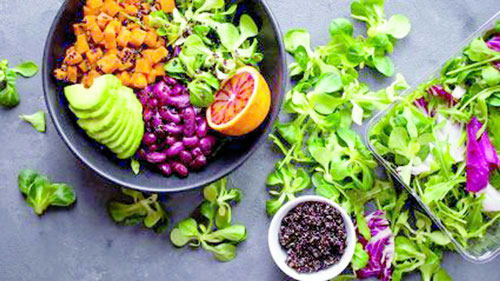A newly published study has found that vegans may be at higher risk of bone fractures than people who incorporate meat into their diet. The risk may also be higher for vegetarians and pescatarians.
Researchers have found that vegans with lower calcium and protein intakes had a 43% higher risk, on average, of experiencing bone fractures than people who ate meat.
According to the study, among the study participants eating a vegan diet, there were close to 20 more cases of fractures per 1,000 people over a 10-year period. In particular, vegans faced a higher risk of fractures of the hips and legs, as well as other main site fractures, such as the clavicle, ribs, and vertebrae.
“This is the first comprehensive study on the risks of both total and site-specific fractures in people of different diet groups,” says Tammy Tong, lead author and a nutritional epidemiologist at the Nuffield Department of Population Health at the University of Oxford in the United Kingdom.
Vegetarians and pescatarians — individuals who do not eat meat but do eat fish — also had a higher risk of sustaining hip fractures than people who ate meat, according to the study.
However, the researchers found that taking body mass index (BMI), dietary calcium, and dietary protein into account partly reduced the risk of fractures in these groups.
The researchers analyzed data from nearly 55,000 men and women living in the U.K. who had agreed to participate in the Oxford component of the European Prospective Investigation into Cancer and Nutrition (EPIC) study to examine how diet affects fracture risk.
Of the participants, nearly 30,000 ate meat, about 8,000 were pescatarians, more than 15,000 were vegetarians, and nearly 2,000 were vegans at the time of their recruitment between 1993 and 2001.
A new poll has found that parents are weighing up the potential risks and benefits of celebrating Thanksgiving with extended family during the pandemic, and deciding that keeping up with tradition may be worth the risk. A new poll has found that parents are weighing up the dangers of celebrating Thanksgiving during the pandemic against the potential benefits of allowing children to see extended family. Many parents, the results suggest, may opt to attend family gatherings despite the risks.
According to the Centers for Disease Control and Prevention (CDC), SARS-CoV-2 spreads mainly through close contact with a person who has contracted the virus. In these situations, the virus can spread if people touch each other — for example, through a handshake or a hug.










